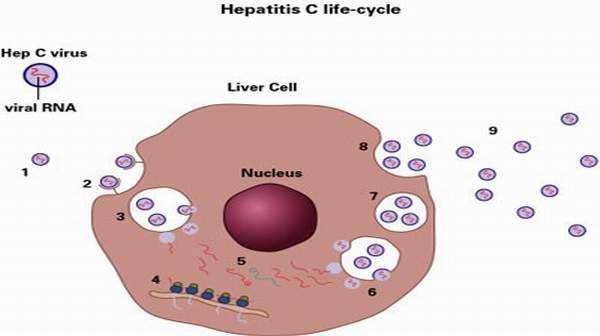What's in this article?
Hepatitis C is a liver infection caused by the Hepatitis C virus (HCV). Hepatitis C is a blood-borne virus. Today, most people become infected with the Hepatitis C virus by sharing needles or other equipment to inject drugs. For some people, hepatitis C is a short-term illness but for 70%–85% of people who become infected with Hepatitis C, it becomes a long-term, chronic infection. Chronic Hepatitis C is a serious disease than can result in long-term health problems, even death. The majority of infected persons might not be aware of their infection because they are not clinically ill. There is no vaccine for Hepatitis C. The best way to prevent Hepatitis C is by avoiding behaviors that can spread the disease, especially injecting drugs.
Causes of Hepatitis
Hepatitis C infection is caused by the hepatitis C virus (HCV).
You can catch hepatitis C if the blood of someone who has hepatitis C enters your body. Exposure may occur:
- After a needle stick or sharps injury
- If blood from someone who has hepatitis C contacts a cut on your skin or contacts your eyes or mouth
People at risk of hepatitis C are those who:
- Inject street drugs or share a needle with someone who has hepatitis C
- Have been on long-term kidney dialysis
- Have regular contact with blood at work (such as a health care worker)
- Have unprotected sexual contact with a person who has hepatitis C
- Were born to a mother who had hepatitis C
- Received a tattoo or acupuncture with needles that were not disinfected properly after being used on another person (risk is very low with practitioners who have a tattoo license or permit or an acupuncture license)
- Received an organ transplant from a donor who has hepatitis C
- Share personal items, such as toothbrushes and razors, with someone who has hepatitis C (less common)
- Received a blood transfusion (rare in the United States since blood screening became available in 1992)
What are the symptoms?
When you have just become infected with the hepatitis C virus, you may have no symptoms and may not even know you have been infected. This is the acute infection phase and can last from six to eight weeks, or longer. If you have symptoms, they are usually mild and may include fatigue, lethargy, nausea, reduced appetite, abdominal pain and jaundice.
Over time, the virus may disappear on its own, and you are no longer infected. This happens to approximately 25 out of 100 hepatitis C-infected people. If the virus does not disappear after six months, your infection is chronic. This happens to approximately 75 out of 100 hepatitis C-infected people.
If your hepatitis C is chronic, in three out of four cases, you will have only very mild to moderate damage to your liver over time. However, in one out of four cases, chronic hepatitis C can lead to more serious problems including cirrhosis, liver failure and liver cancer over a period of 25 to 30 years.
You are more likely to develop cirrhosis if you drink alcohol, are obese, are male, became infected after age 40, have another type of liver disease or have another chronic infection, such as HIV or hepatitis B in addition to hepatitis C.
Treatment
You should talk to your provider about your treatment options and when treatment should begin.
- The goal of treatment is to rid the body of the virus. This can prevent liver damage that may lead to liver failure or liver cancer.
- Your provider will monitor you by checking liver blood tests, viral load (the amount of HCV in your blood), imaging tests, and biopsy results.
- Treatment is especially important for people who are showing signs liver fibrosis or scarring.
Medicines used to treat hepatitis C are called antiviral drugs because they fight the HCV. Newer antiviral drugs:
- Provide a much improved cure rate
- Have fewer side effects and are easier to take
- Are taken by mouth for 12 to 24 weeks
The choice of which drug depends on the genotype of the virus you have.
A liver transplant may be recommended for people who develop cirrhosis and liver cancer. Your provider can tell you more about liver transplant.
If you have hepatitis C:
- Do not take over-the-counter medicines that you have not taken before without asking your provider. Also ask about vitamins and other supplements.
- Do not use alcohol or street drugs. Alcohol can speed up the damage to your liver. It can also reduce how well medicines work.
- Ask your provider whether you need the hepatitis A and hepatitis B vaccines.





